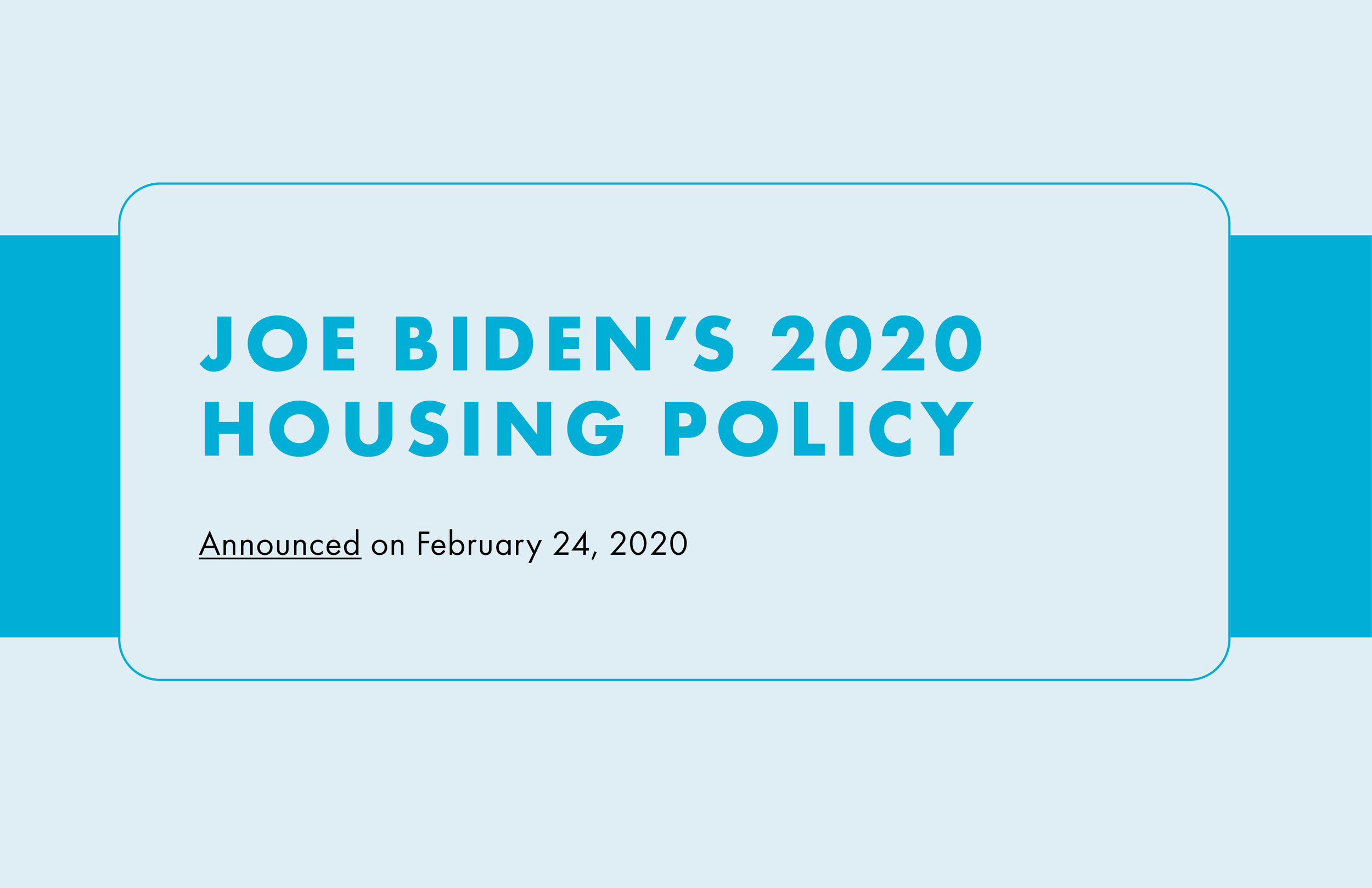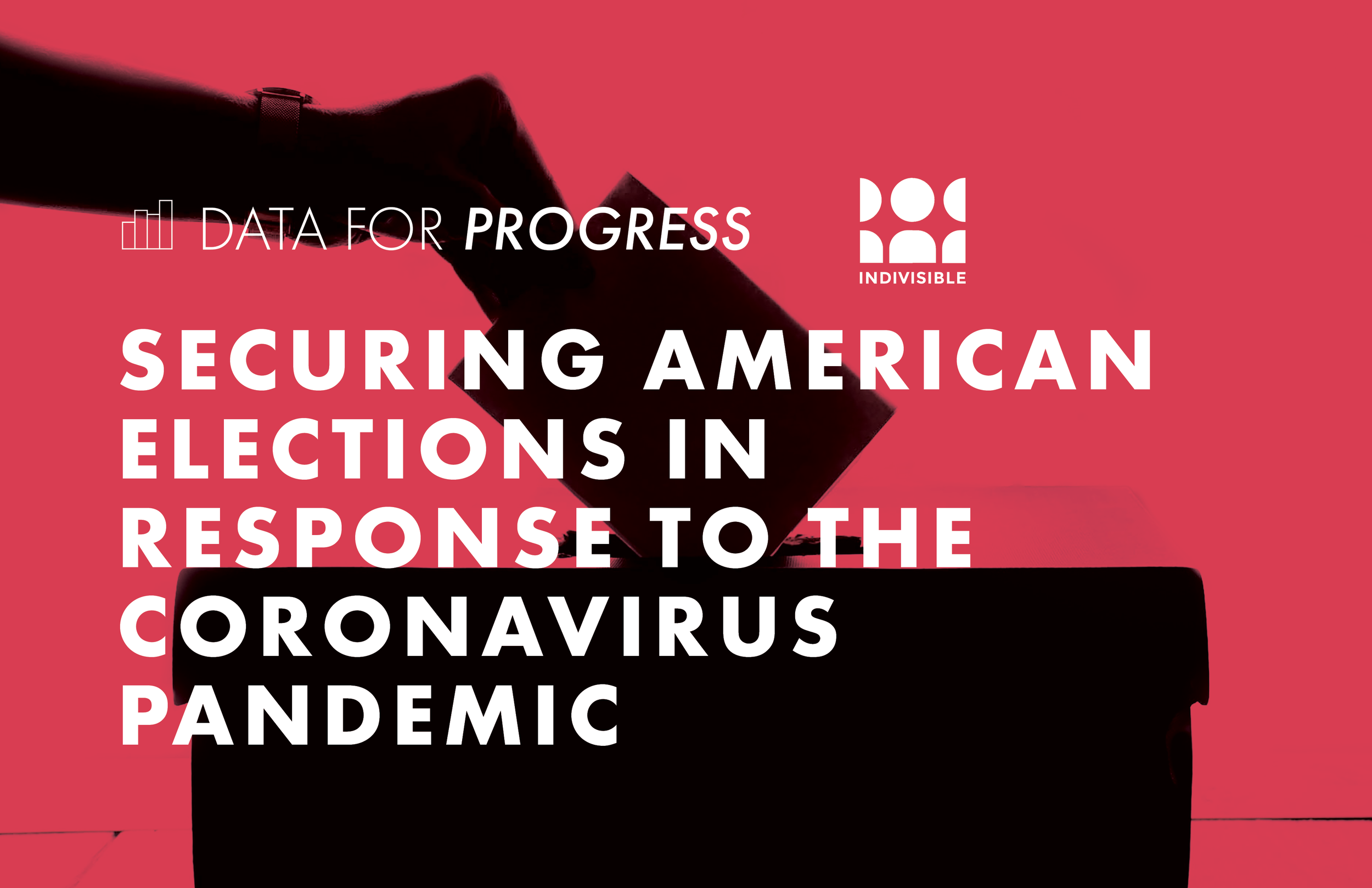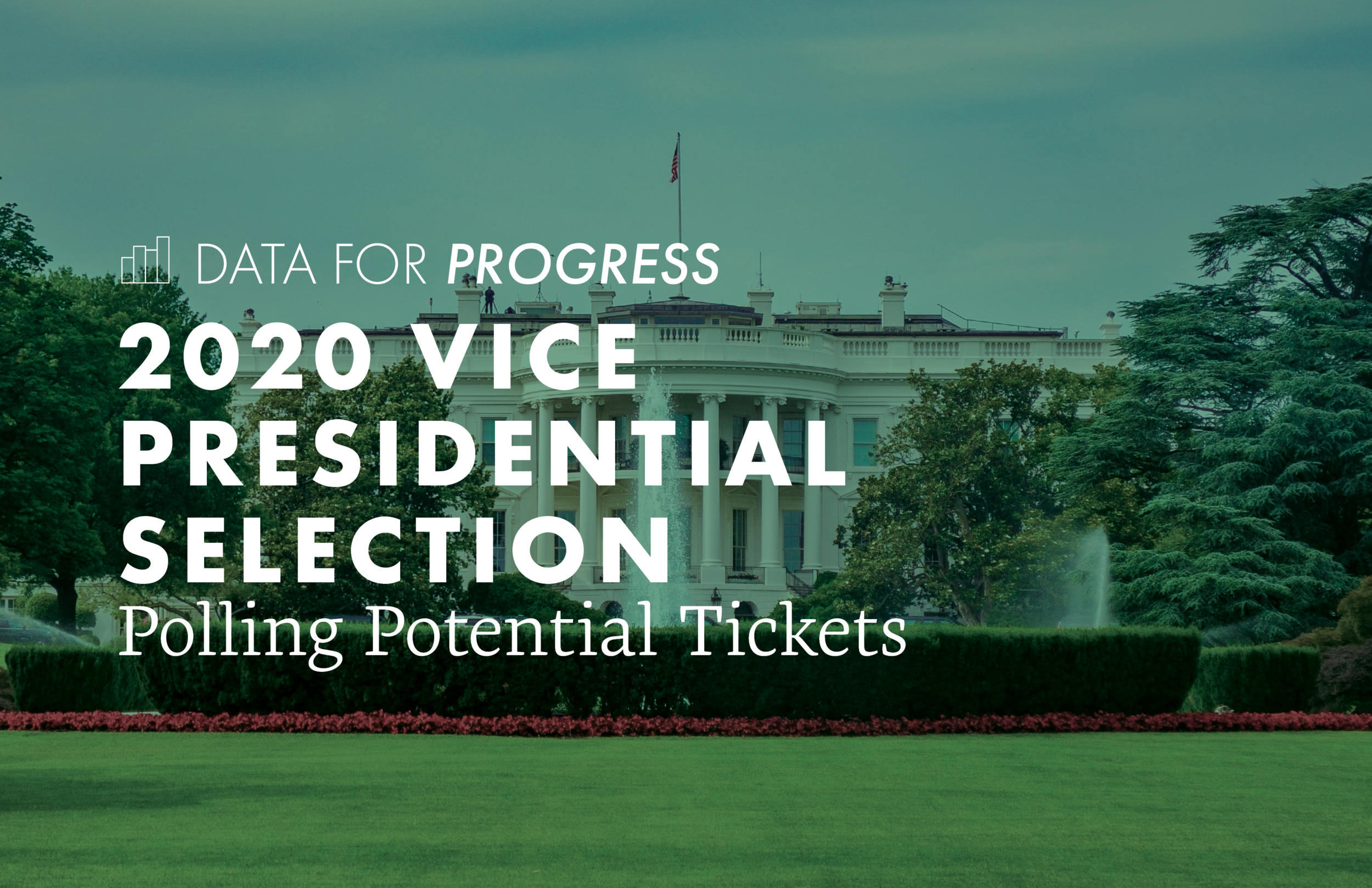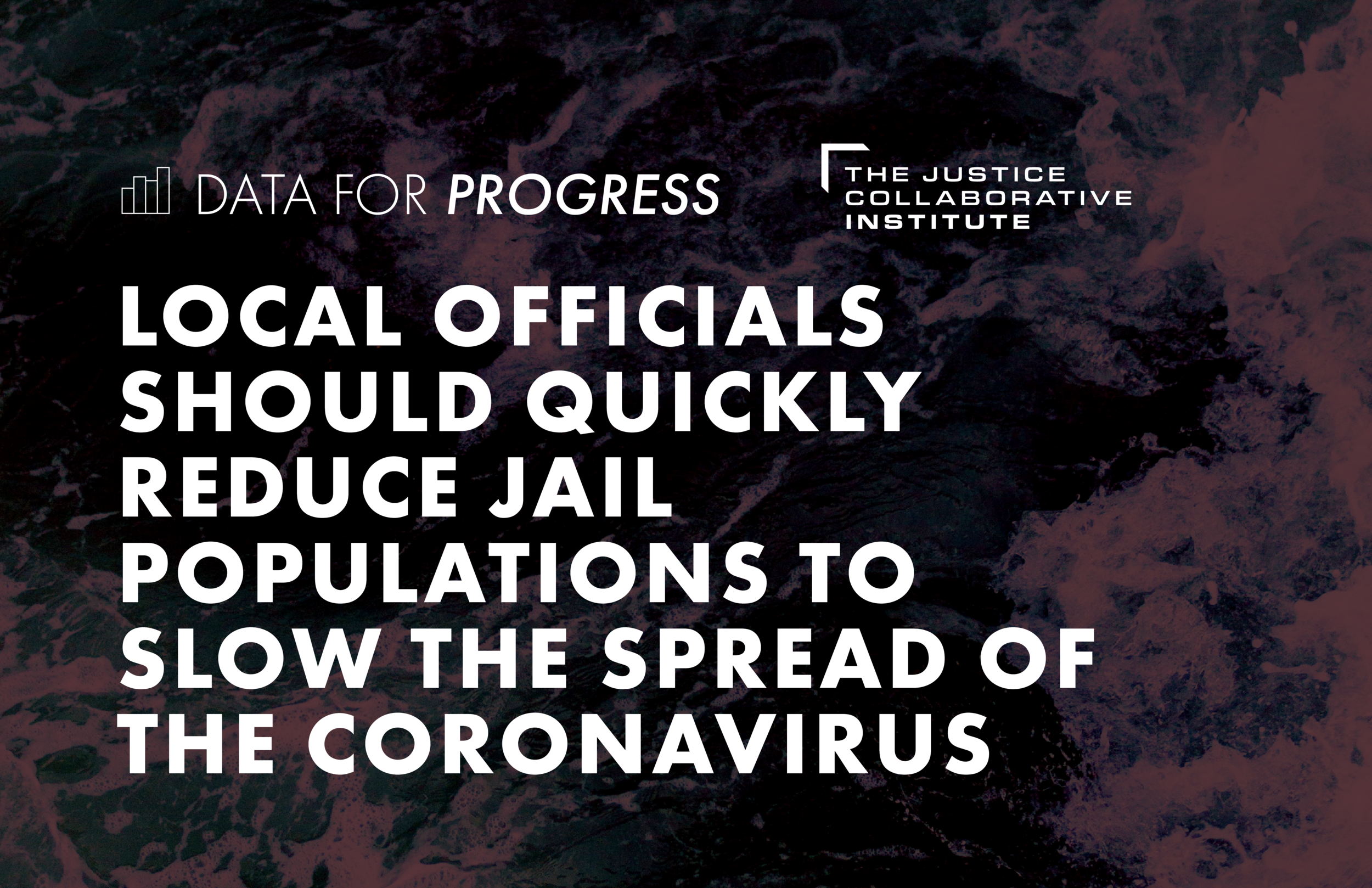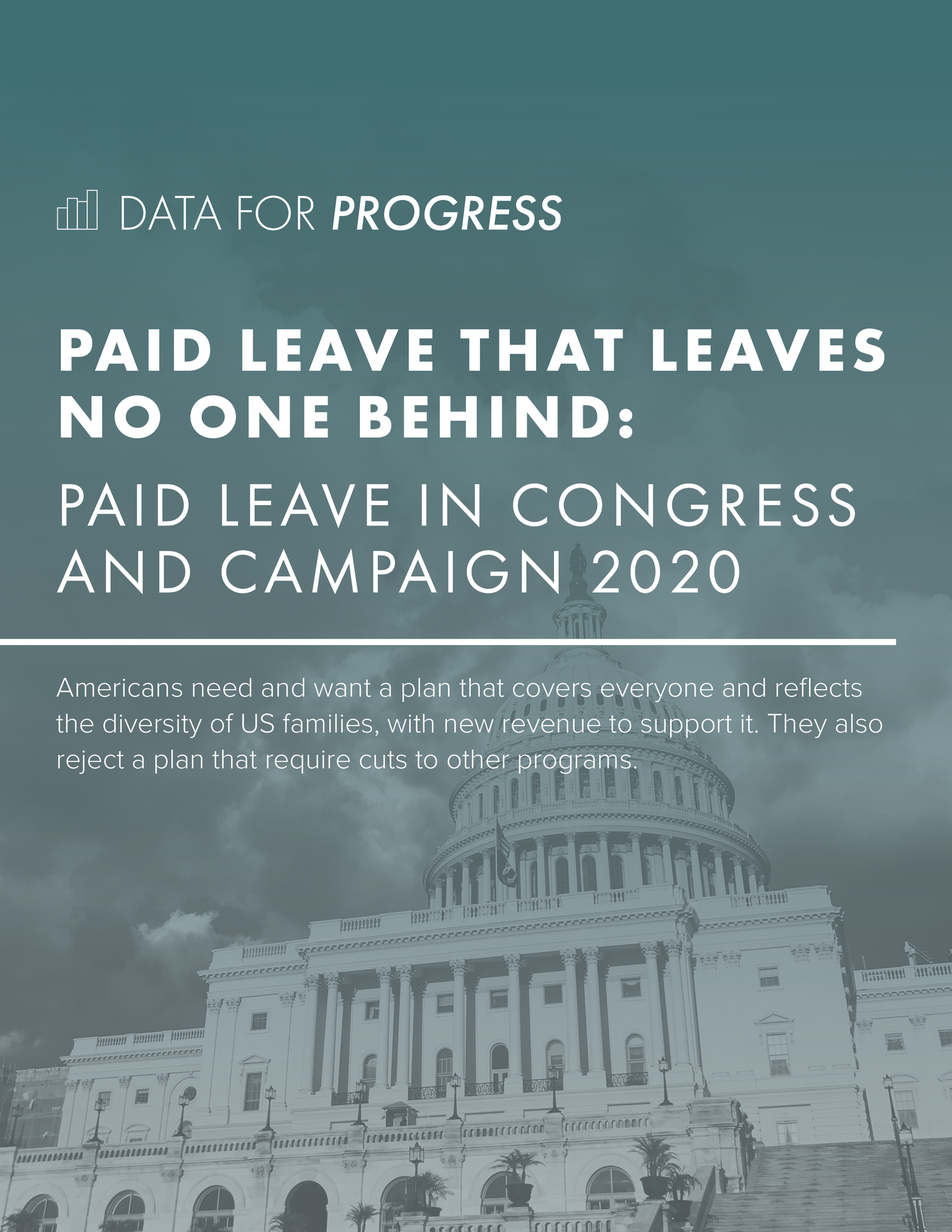Joe Biden’s housing plan is relatively moderate compared to some of his former primary opponents’ though it still offers a significant increase in federal support for renters and prospective first-time homeowners.
Read MoreOn April 7, 2020, Wisconsinites faced a choice between risking infection and participating in the democratic process.
Read MoreThe Democratic primary came to a conclusion when Senator Bernie Sanders withdrew from the contest. The end of the race doesn’t, however, mean the policy divisions that emerged during the race will be immediately resolved.
Read MoreAs the number of cases of COVID-19 in the United States continues to sharply increase, and as city, state, and federal officials take increasingly aggressive moves to contain the virus’s spread, it is critical to understand the significant role our nation’s more than 2,800 county jails may play in spreading the disease, not just within the facilities, but to vulnerable communities more broadly.
Read MoreAmidst the calls for “self-isolation,” thousands of immigrants are herded into detention facilities, which, for all intents and purposes, are prisons, where we know that the risk of infection is great. The solution to this crisis is simple: release people from detention and stop detaining people in the first place. But will the United States government rise to the call?
Read MoreDemocrats in Congress are now arguing additional measures need to be taken. Speaker of the House, Democrat Nancy Pelosi, described in an interview “a list of Democratic priorities, including increased protections and equipment for workers on the front lines of the coronavirus, expanded paid leave, a major new infrastructure investment and additional funds for state and local governments” she’d like to see tackled in additional legislation.
Read MoreIn 2016, Donald Trump won a narrow victory at least partly by persuading millions of voters who supported Barack Obama in 2012 to vote for him in 2016. Given the narrowness of the outcome, these swing voters were more than sufficient to win Trump the election. In 2020, however, it is Trump who must worry about losing some of his base of support.
Read MoreOn March 3rd Democrats across more than a dozen states will go to the polls in an event dubbed Super Tuesday. More than 1,300 delegates, or nearly one-third of the total, will be in play.
As part of Data for Progress’s polling this Democratic primary season, we have asked questions not only about the current state of the race but also about support for progressive policies among likely Democratic primary voters. Here, we present our results for support for Medicare for All in a host of Super Tuesday states. Specifically, we asked likely Democratic primary voters,
“Would you support or oppose replacing private health insurance with a single government plan for everyone, sometimes called a ‘Medicare for All’ plan?”
Read MoreData for Progress conducted a poll of 766 likely Nevada caucusgoers from 2/12/2020 through 2/15/2020. Likely caucusgoers were identified from the Nevada voter file and weighted to a likely electorate. Our margin of error is +/- 3.4 percent.
Read MoreA fundamental change is taking place within the Democratic Party. For decades, Democrats feared being called “liberal,” let alone “progressive.” Indeed, it was President Bill Clinton who declared the “era of big government” to be over. Now, however, Bernie Sanders, a senator from Vermont and a self-professed democratic socialist, is a frontrunner in the Democratic Party’s presidential primary. And it’s not just Sanders. First-year Congresswoman Alexandria Ocasio-Cortez rose to prominence following her endorsement by the Democratic Socialists of America (DSA), and she has quickly become one of the most recognizable and popular figures in the party.
Read MoreThe Democratic primary election for the 2020 Senate nomination in Texas is in flux, with retired US Air Force Major MJ Hegar, labor organizer Cristina Tzintzún Ramirez, and state Senator Royce West in the strongest positions for a possible runoff election. Hegar leads the pack, with 18 percent of the vote, followed by Tzintzún Ramirez and West, who are tied at 13 percent.
Read MoreSince we launched our Green New Deal scorecard, Democratic candidates — moderates and progressives alike — have released plans that leverage more ambitious emissions targets, a broader array of federal policy tools, and more robust jobs and justice programs.
Read MorePresident Donald Trump currently trails the three leading Democratic candidates in the 2020 U.S. presidential election, both nationally and within most of the key battleground states of Michigan, Pennsylvania, Wisconsin, Florida, Arizona, and North Carolina.
Read MoreAs the Democratic primary heats up, Democratic presidential candidates have begun sharing their plans to pay for Medicare for All. As part of our most recent survey, we polled some of these ideas alongside a series of items probing American voters’ attitudes toward healthcare, the health insurance industry, and Medicare for All. This memo briefly summarizes the results.
Read MoreFrom 9/9-9/13, Data for Progress polled a sample of all registered Democrats via text-to-web across NY-16 using a commercial voter file. Data for Progress surveyed 578 registered Democratic in-district respondents. Respondents who said they were “definitely not” going to vote in the upcoming congressional primary were excluded. The following results use a propensity score weighting method that weights on a number of political and demographic characteristics. The margin of error is +/- 5.7% with a 95% confidence interval. These results should be looked at as the broadest interpretation of the electorate. There are 250,000 registered Democrats in the 16th, and only 30,000 of them voted in last year’s Congressional primary.
Read MoreToday, more than four in five US workers (81 percent) do not have paid family leave from their jobs for family care, and 60 percent do not have short-term disability insurance through their jobs to ensure they have paid leave for their own serious health issues, including pregnancy-related health challenges. These aggregated figures mask substantial disparities by occupation, industry, and wage levels, and also mask unequal access to paid leave—even within the same firm. The FAMILY (Family and Medical Insurance Leave) Act sponsored by Senator Kirsten Gillibrand (D-NY) is a national paid family and medical leave program would cover virtually all working people in the United States. It is the most comprehensive family leave proposal currently introduced in Congress, and sets the standard for the 2020 Presidential field. Most of the leading Presidential contenders support the Family Act.
Read More
